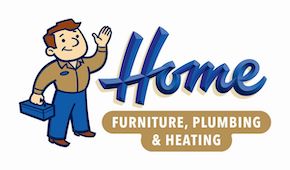
To combat increasing energy expenses and embrace sustainability, many homeowners are trying new methods to maintain comfort levels while using less energy. With help from the Inflation Reduction Act, federal tax credits are available for high efficiency HVAC equipment. These credits offer a big chunk of the installation costs, provided that homeowners use eligible equipment and submit the appropriate form.
If you’re concerned the application process might be tedious, we can share something that will help! Home Furniture, Plumbing & Heating hopes this guide will give you what you need to secure 2024’s HVAC tax credits. Here’s how to make it happen.
Understanding the HVAC Tax Credits
These valuable tax credits for upgrading your home to be more energy-efficient are just one small part of the recent Inflation Reduction Act. Energy costs affect everyone, so helping homeowners upgrade to higher efficiency utilities can benefit everyone. The key provision of these credits is to mitigate costs associated with installation and renovation projects. The two we’ll cover are the Energy Efficiency Home Improvement Credit and the Residential Clean Energy Credit.
But remember, in order to claim your credits, you’ll need a completed IRS Form 5695. Additionally, this form is submitted during the same tax year your upgrades were installed, not bought.
Energy Efficiency Home Improvement Credit
Through 2032, the Energy Efficiency Home Improvement Credit provides up to $3,200 every year for energy-efficient home upgrades. This equals 30% of the total project’s cost. It's important to note in order to get back the maximum amount, it involves making different investments. For example, you’ll get up to $2,000 for a new, high-efficiency heat pump. This can be combined with the remaining $1,200 in credits for other eligible upgrades made within the tax year.
While new heat pump installation projects are a popular option for the tax credit, high-efficiency furnaces, air conditioners, boilers, and other HVAC systems are still eligible for this tax credit. It will help to confirm the make and model’s energy efficiency rating is high enough for eligibility.
Residential Clean Energy Credit
The Residential Clean Energy Credit offers 30% savings on a variety of residential clean energy equipment upgrades. Eligibility only applies to homeowners seeking to update existing or newly constructed homes. While the Home Improvement Credit highlights utilities and HVAC systems, this credit is instead designed around renewable energy sources like solar and wind energy.
Some specific items in this tax credit include the requirement that installation must occur between 2022 and 2032. But at the same time, homeowners can use any excess credit to reduce taxes in future years. This is a great way to soften the entry into investing in clean energy.
Additional Qualifications for Energy Tax Credits
Because HVAC systems are one of the biggest expenses on your energy bill, these tax credits offer more access to the most energy-efficient options. But home energy efficiency can be improved in many other ways. Apart from the previously listed HVAC upgrades, {you could also choose|other eligible items include|you also have access to:
- Heat pump water heaters
- Electrical panel upgrades
- New electrical wiring
- Insulation, air sealing and ventilation enhancements
- High-efficiency electric stoves, cooktops, ranges or ovens
- Heat pump clothes dryers
- High-efficiency water boilers
Like the HVAC systems, you’ll need to confirm that your chosen products meet the eligible energy efficiency ratings.
Three Tips for Making the Most of 2024 HVAC Tax Credits
While any of these upgrades can boost home energy efficiency, some planning ahead will ensure more long-term benefits. Maximize your HVAC tax credits with these three tips:
- Perform an energy audit to pinpoint valuable enhancements. Trust experienced HVAC companies to pinpoint essential products and services.
- Enhance your home's envelope by addressing inefficient windows and doors.
- Explore potential rebates from utility companies for clean energy upgrades. Renewable sources like solar, wind, and geothermal contribute to community power grid sustainability.
- Don’t forget financing options from local service companies, which can help reduce costs even more.
Secure Your 2024 HVAC Credits with Help from Home Furniture, Plumbing & Heating
Partner with local HVAC professionals like Home Furniture, Plumbing & Heating for eligible serves like energy assessments or new installation. Our seasoned installers can deliver whatever you need for a more energy-efficient home.
